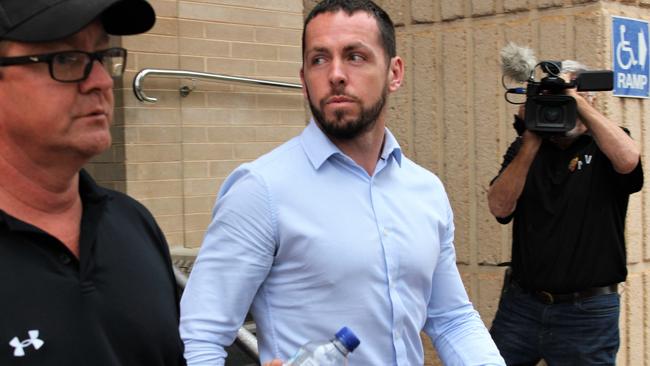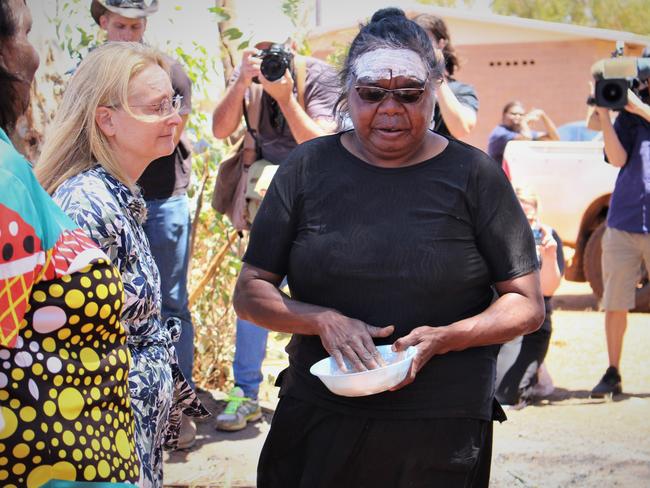Zach Rolfe’s legal bid to avoid questions at Walker inquest rejected
A Supreme Court judge has handed down her ruling on Zach Rolfe’s refusal to answer questions at an inquest into the death of Kumanjayi Walker, describing an alternative outcome as ‘absurd’.

Police & Courts
Don't miss out on the headlines from Police & Courts. Followed categories will be added to My News.
Zach Rolfe will be forced to answer questions about racist text messages he sent to colleagues and the night he fatally shot Kumanjayi Walker after a last ditch bid to avoid scrutiny failed.
Constable Rolfe gave evidence at an inquest into Mr Walker’s death last month but refused to answer various questions after appealing Coroner Elisabeth Armitage’s ruling compelling him to do so.
In dismissing that appeal on Thursday, Supreme Court Justice Judith Kelly ruled his lawyers’ arguments about why Ms Armitage should be overruled were “untenable”.
Constable Rolfe’s legal team had contended he was entitled to refuse to answer questions that could expose him to internal NT Police disciplinary proceedings, even if granted an immunity certificate declaring his answers could not be used against him.
But in making her ruling, Justice Kelly said she agreed with lawyers for the North Australian Aboriginal Justice Agency that parliament had never intended for the “penalty privilege” to apply to Coronial inquests at all.
“Quite the reverse — it was intended to make it harder for witnesses to refuse to answer questions (and so easier for the Coroner to ascertain the truth) — not to provide witnesses with an extended ability to refuse,” she wrote.
However, Justice Kelly said even if she was wrong in supporting NAAJA’s interpretation of the law, the Coroner’s original ruling compelling Constable Rolfe to testify under an immunity certificate “must be correct”.

She said his lawyers’ contention that witnesses could be compelled to implicate themselves in a crime but not an internal disciplinary proceeding “would be an absurd result”.
“It would subvert the whole purpose of section 38 since, in the case of police officers and other public officials, almost all criminal acts would also have potential disciplinary consequences with the result that the Coroner could almost never require police officers (and others) to answer such questions on the provision of a certificate,” she said.
“Given the expressed object of the Act to implement recommendations of the Royal Commission into Aboriginal Deaths in Custody, and the key role of police officers in such proceedings — and others under the Act — and given the expressed object of the 2002 amendment to make it easier for the Coroner to ascertain the truth by limiting the ability of witnesses to refuse to answer questions, such an interpretation would not advance the objects of either the original Act or the 2002 amendment; rather it would subvert those objects.”
Constable Rolfe is now expected to return to the witness box in Alice Springs in February, subject to any further appeal of Justice Kelly’s ruling.




